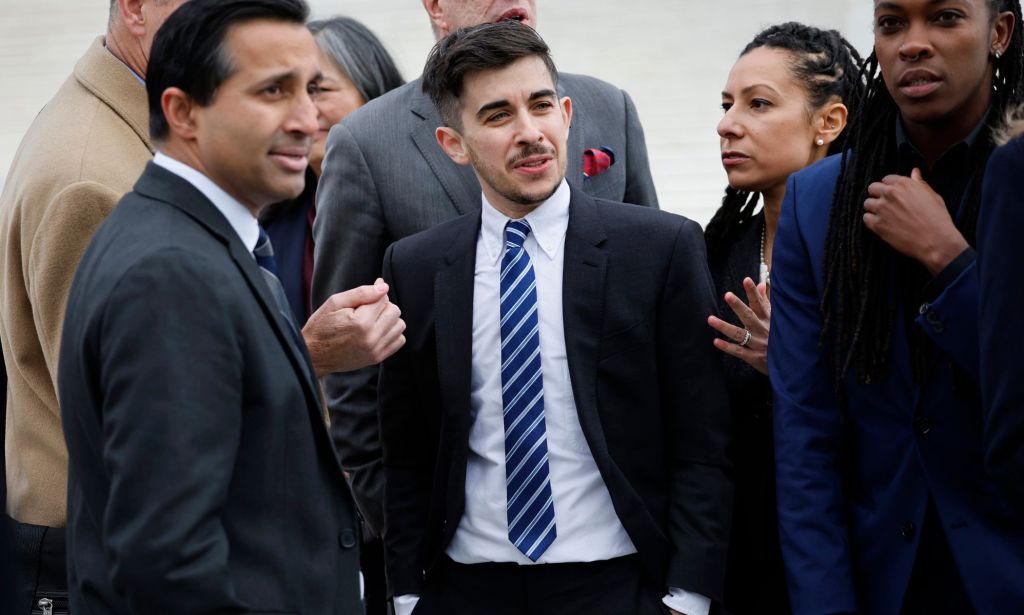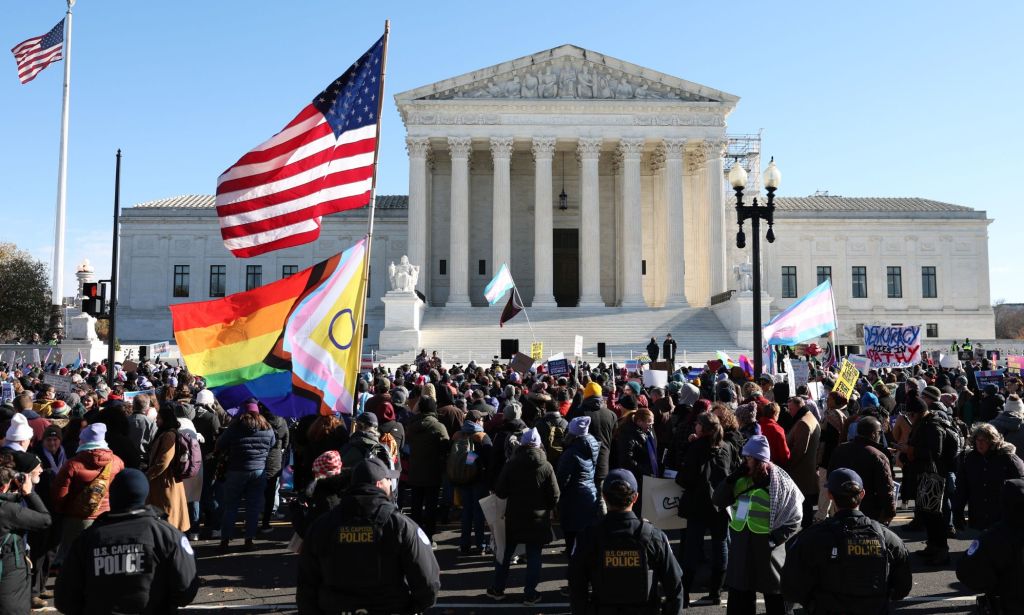US v Skrmetti: Supreme Court hears arguments on major trans healthcare case

The Supreme Court heard oral arguments on US v Skrmetti. (Getty)
The US Supreme Court has heard oral arguments in the transgender healthcare case which will determine whether discrimination against trans people violates the constitution.
Legal representatives defending and opposing a ban on gender-affirming care in Tennessee were heard on Wednesday (4 December), with Chase Strangio, the first transgender lawyer to present a case before America’s top court, arguing that the state was taking away “the only treatment that relieved years of suffering” for trans youngsters.
The hearing follows the passing of a bill in the Tennessee house of representatives, which prompted the American Civil Liberties Union (ACLU), Lambda Legal and lawyers from Akin Gump Strause Hauer & Feld to sue the Volunteer State.
They were initially successful in blocking the bill’s passage into law but the ruling was overturned by a federal appeal court in September 2023.

While US v Skrmetti will specifically determine whether the ban in Tennessee is lawful, it is also likely to set a precedent across the country.
Data collected and shared by the ACLU revealed that at least 530 anti-LGBTQ+ bills have been proposed in the US since the beginning of the year, with 112 of those involving healthcare restrictions.
The ban is inconsistent, lawyer argues
Supporting Strangio’s argument, US solicitor general Elizabeth Prelogar told the Supreme Court that the ban was inconsistent because non-trans patients are still allowed to use puberty blockers for other medical purposes.
“The law restricts medical care only when provided to induce physical effects inconsistent with birth sex,” she said. “Someone assigned female at birth can’t receive medication to live as a male, but someone assigned male can. If you change the individual sex, it changes the result. That’s a facial sex classification, full stop, and a law like that can’t stand on bare rationality.”
However, chief justice John Roberts – long seen as a conservative – said the case differed from other decisions related to sex discrimination because of its medical ramifications.
“It seems to me that the medical issues are much more heavily involved than in many of the cases that you look to,” he told Prelogar. “And if that’s true, doesn’t that make a stronger case for us to leave those determinations to the legislative bodies rather than try to determine them for ourselves?”

Tennessee solicitor general Matthew Rice, arguing on behalf of the ban, tried to draw a distinction between the use of drugs such as testosterone for gender-affirming care and for other medical needs, The Guardian reported.
“There has to be a medical purpose for these drugs,” he said. “All [the plaintiffs’] arguments rest on conflating different medical purposes.”
But liberal associate justice Elena Kagan said the case was “imbued with sex”, adding: “You might have reasons for thinking that it’s an appropriate regulation, and those reasons should be tested and respect given to them, but it’s a dodge to say that this is not based on sex [and that] it’s based on medical purpose when the medical purpose is utterly and entirely about sex.”
During Strangio’s arguments, justice Ketanji Brown Jackson, who was nominated to the court by president Joe Biden, expressed concerns that the case was “undermining the foundations of some of our bedrock equal protection cases”.
She told Strangio that she shared his concerns. “If Tennessee can have an end run around heightened scrutiny by asserting at the outset that biology justifies the sex-based differential in the law, that would undermine decades of this court’s precedent.”
The case continues.
Share your thoughts! Let us know in the comments below, and remember to keep the conversation respectful.
How did this story make you feel?

